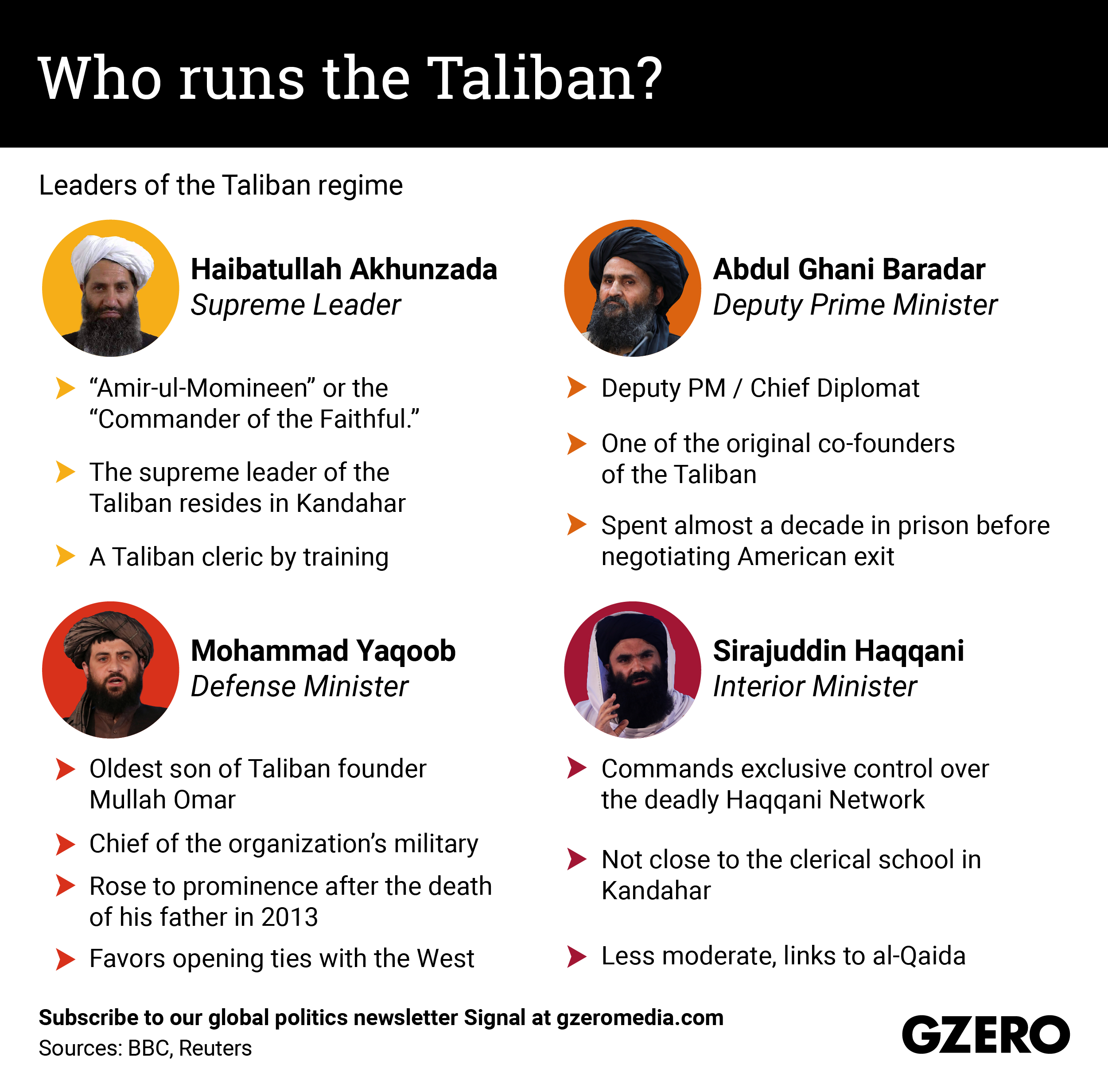August 14, 2022
The Taliban have been in control of Afghanistan for a full year. But before they took over, they had a shadow government operating across vast swaths of the country, complete with a justice, policing, and tax system. After the US left, and the democratic Afghan government fled, the Taliban didn’t take long to form an “interim” government not just in Kabul but also their own “spiritual” capital of Kandahar. Today, the regime is split, with the all-important religious leadership residing in Kandahar, and the more bureaucratic, hands-on cadres in Kabul. And this comes with its political divides as well: recently the Kandahar-based supreme leader vetoed Kabul’s decision to let girls return to schools. We list the leading who’s who of the Taliban regime.
More For You
Bad Bunny during the Super Bowl LX halftime show press conference at Moscone Center.
Kirby Lee-Imagn Images
100 million: The number of people expected to watch the Super Bowl halftime performance with Bad Bunny, the Puerto Rican superstar and newly minted Album of the Year winner at the Grammys.
Most Popular
Think you know what's going on around the world? Here's your chance to prove it.
- YouTube
An imminent US airstrike on iran is not only possible, it's probable.
Americans are moving less — and renting more. Cooling migration and rising vacancy rates, especially across the Sunbelt, have flattened rent growth and given renters new leverage. For many lower-income households, that relief is beginning to show up in discretionary spending. Explore what's changing in US housing by subscribing to Bank of America Institute.
© 2025 GZERO Media. All Rights Reserved | A Eurasia Group media company.
